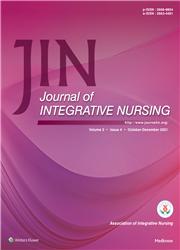Nursing students' experiences of horizontal violence and occupational belonging during clinical placements
Q4 Nursing
引用次数: 0
Abstract
Background: Horizontal violence has negatively affected the students' active learning, interpersonal relationship, and occupational belonging. However, little attention has been paid to the relationship between horizontal violence and occupational belonging among nursing students. Objective: The objective of this study was to explore the frequency, types, perpetrators, effects, and responses of horizontal violence experienced by nursing students and the relationship between occupational belonging and horizontal violence. Materials and Methods: The present study used a descriptive, cross-sectional survey design. The data were collected from the 277 undergraduate nursing students selected by convenience sampling method using personal characteristics form, horizontal violence survey, and occupational belonging subscale at nursing faculty in Istanbul. Results: The first three horizontal violence behaviors experienced by nursing students were found, respectively: being forced to do trivial and unimportant work which are not the students' responsibility (84.1%), being exposed to sarcastic remarks by nurses (80.9%) and unwillingness of the nurse to help and lack of support (80.9%) and being ignored by nurses (77.3%). Nearly half of the students (48.4%) considered leaving nursing profession as a result of horizontal violence. There was a negative relation between horizontal violence and occupational belonging (P < 0.05). As horizontal violence scores increased, occupational belonging scores decreased. Conclusions: Findings from this study shown that horizontal violence decreasing occupational belonging, and so nursing students consider leaving nursing profession or education. Further studies are needed to better demonstrate addressing the horizontal violence bilaterally and the effective preventive interventions.护理学生在临床实习期间的横向暴力和职业归属经历
背景:横向暴力对学生的主动学习、人际关系和职业归属有负面影响。然而,对护生横向暴力与职业归属感的关系研究较少。目的:探讨护生遭受横向暴力的频率、类型、施暴者、影响和反应,以及职业归属与横向暴力的关系。材料和方法:本研究采用描述性横断面调查设计。采用便利抽样法,采用个人特征表、横向暴力调查和职业归属量表对伊斯坦布尔护理学院277名本科护生进行数据收集。结果:护生经历横向暴力行为的前3项分别为:被强迫做不应由学生负责的琐碎和不重要的工作(84.1%)、被护士冷嘲冷讽(80.9%)、护士不愿意帮助和缺乏支持(80.9%)和被护士忽视(77.3%)。近一半(48.4%)的学生因遭受横向暴力而考虑离开护理专业。水平暴力与职业归属感呈负相关(P < 0.05)。随着横向暴力得分的增加,职业归属得分下降。结论:本研究结果显示,横向暴力降低了护生的职业归属感,因此护生考虑离开护理专业或教育。需要进一步的研究来更好地证明双边解决横向暴力和有效的预防性干预措施。
本文章由计算机程序翻译,如有差异,请以英文原文为准。
求助全文
约1分钟内获得全文
求助全文
来源期刊

Journal of Integrative Nursing
Nursing-General Nursing
CiteScore
0.40
自引率
0.00%
发文量
3
审稿时长
17 weeks
 求助内容:
求助内容: 应助结果提醒方式:
应助结果提醒方式:


